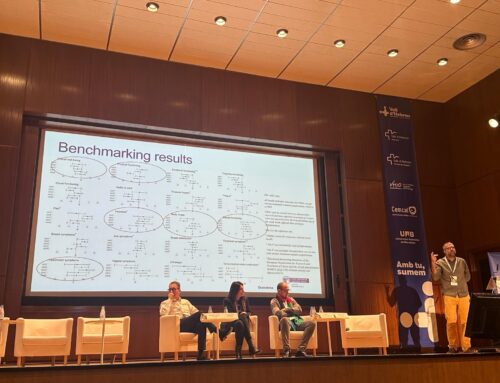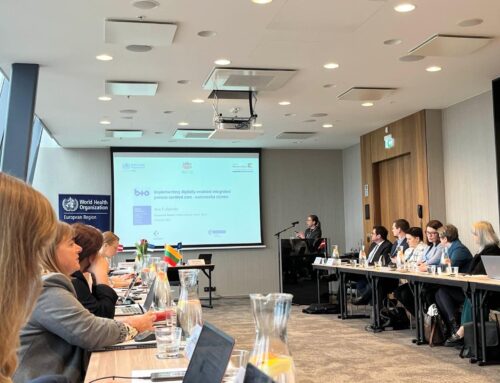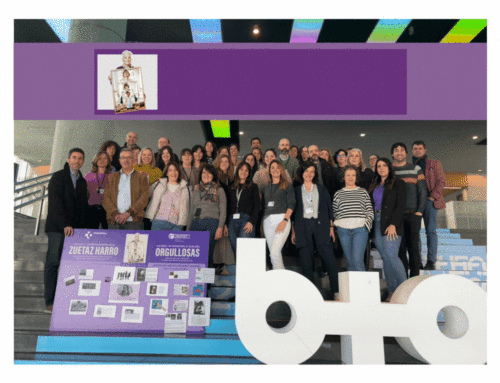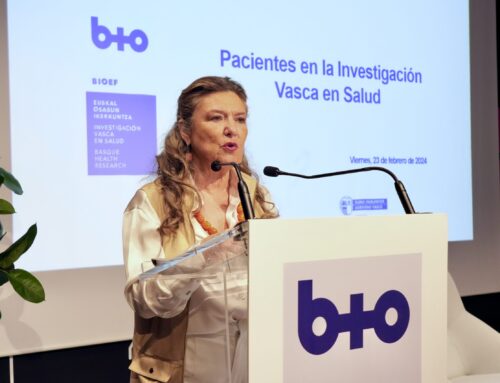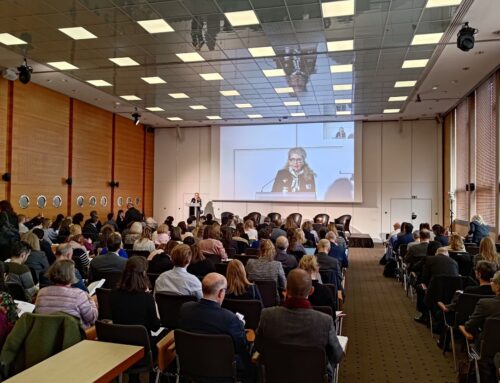The application to be deployed will enable the social and health systems to carry out daily monitoring of patients through the observation of the evolution of their parameters and will also facilitate adherence to treatment through personalized online exercises.
 The group of Basque companies formed by Init Group, Aurrerantz (SSI Group), STT Systems, Athlon and the collaborating agents of the Basque Science, Technology and Innovation Network (RVCTI in Spanish), Tecnalia, Home Care Lab and Kronikgune, together with the Social Action Area of the Bilbao City Council, are participating in the FRAGICare project. This project will develop a technological platform for the management of the functional fragility of people over 70 years old, users of the Home Help Service (SAD).
The group of Basque companies formed by Init Group, Aurrerantz (SSI Group), STT Systems, Athlon and the collaborating agents of the Basque Science, Technology and Innovation Network (RVCTI in Spanish), Tecnalia, Home Care Lab and Kronikgune, together with the Social Action Area of the Bilbao City Council, are participating in the FRAGICare project. This project will develop a technological platform for the management of the functional fragility of people over 70 years old, users of the Home Help Service (SAD).
FRAGIcare will make it possible to detect frail or pre-fragile people, prescribe activities to achieve healthy lifestyles and keep track of their performance and daily condition.
The progressive aging of the population
The Basque Country is moving towards a sociodemographic context in which the need for social and health care will be increasingly evident. The increase in people’s life expectancy together with the low birth rate is giving rise to the progressive aging of the population.
In this context, the concept of functional frailty, a state of pre-disability, of risk of developing a disability or functional loss, is introduced. A good predictor of adverse health events in the short, medium and long term. Preventing disability by acting on frailty is possible, since the latter can be detected and is amenable to intervention.
Early identification and evidence-based intervention can make it possible to control frailty and even reverse it, improving the quality of life and well-being of the older person.
Direct observation of the elderly in their home environment through the professionals of the Home Help Service can favor and help in the early detection of people at risk of frailty and intervention on frailty. The challenge is to maintain autonomy and independence as we age, considering that the health of the elderly should be measured in terms of function and not disease. A function that allows the highest degree of autonomy possible in each case.
The new strategic priorities are committed to placing people with simultaneous social and health care needs at the center, as the protagonists of their life project, and the home as the place of work where interventions take place, in addition to focusing on specific care actions and functional coordination between the two systems. In this sense, coordination between the primary care of the health system and social services is particularly relevant, and FRAGICare will make it possible to share information on individuals.
According to Ane Fullaondo, Head of R&D coordination at Kronikgune: “The approach to frailty is aligned with existing policies and strategies at state and regional level. For example, with the publication of the document “Prevention of frailty and falls” published by the Ministry of Health and the existence of the Osakidetza corporate program “Plan de Atención a personas Mayores, PAM”. And with actions such as the creation of the new Social and Health Directorate in the Department of Health of the Basque Government.
The FRAGICare project, a project co-financed by the Basque Government’s Hazitek 2020 program, was created to develop a technological platform and a management model that involves the patient and his or her family, and implies coordination between the social system and the healthcare system.
In the words of Javier Escobal, Innovation Director of Grupo Init: “First, with the Cronicare project, from Grupo Init in collaboration with Aurrerantz (SSI Group), we addressed the typical chronicities in the elderly. Now, with FRAGICare and the collaboration of a broader consortium, we are tackling another part of this 360º view of care for the elderly. Moreover, we do so from the early stages of pre-frailty. We will continue to collaborate together and with the same look to accompany and improve the quality of life of these people through technology.”
This application will make it possible for the social and healthcare systems to carry out daily, regular and sustained monitoring of people over time by observing the evolution of their parameters. The data collected will make it possible to design and deploy plans tailored to each person, with recommendations for healthy habits, personalized information on frailty, intelligent alarms, etc.
Inma Uzkudun, Head of Knowledge Transfer SSI has stated that “To help the SAD in this observation at home, the FRAGICare project will develop a solution based on inertial sensors that will allow a quantification of the functional capacity of the person and help in the early detection of the risk of frailty”.
Maykel Alonso, Director of Innovation at SST Systems emphasized that “Until now, this type of test has been carried out with a stopwatch in hand and from the perception of the person performing it, who must also be aware of so many other things. Our technology provides a tool that allows measurements to be taken, saves time and, in conjunction with the FRAGICARE platform, makes it possible to monitor and even trigger alarms for early detection of pre-fragile states. In the long run, this means an improvement in the quality of life in old age”.
Once again, it becomes clear that technology offers tools to solve problems in today’s society and helps to empower people in their care and make them responsible for their own health. In addition, the coordination of the health and social system allows for a holistic vision and monitoring of users.
Gorka Martínez, Athlon’s Innovation Director, pointed out that “At Athlon, we are very pleased to be able to collaborate with other entities in this project that seeks to improve the frailty of the elderly”.
FRAGICare seeks to make the person feel as the real center of attention on which the whole system revolves, creating a solution according to their needs.
If you want to know more about the project, click here or visit the project page on our website.

